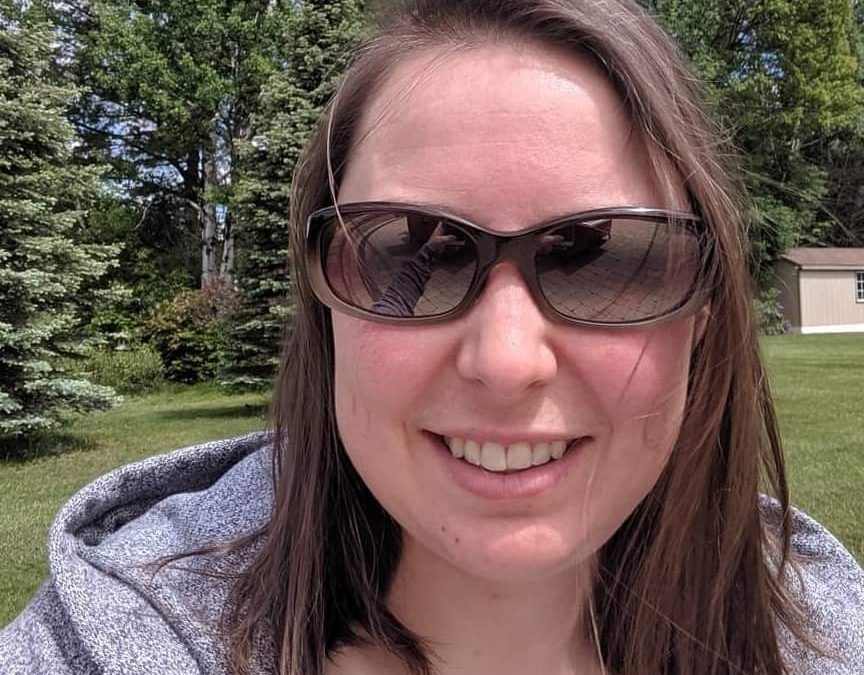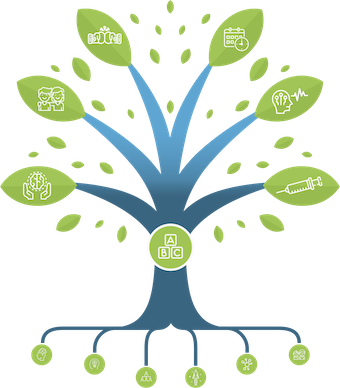Sabrina’s Migraine Story
Sabrina’s migraine
Sabrina has battled migraine since she was a little girl. At her worst, she would wake up every morning with tunnel vision, blurred sight, and a nauseous feeling in her stomach—the first signs of an impending migraine. By 11 a.m., she knew it was time to take her medication. On her worst days, she would vomit every few hours and felt as if her entire body was shutting down.
Triggers
For a long time, Sabrina was highly concerned about triggers, including weather changes, wind, rain, and certain foods. She felt like everything was a trigger. Eventually, she stopped focusing on triggers and adopted a mindset of “I just have migraine disease.” Sabrina began Pain Reprocessing Therapy, which helped her understand that pain originates in the brain, and all potential triggers were not necessarily the cause of her migraine. Letting go of the stress of tracking triggers has made her happier.
Preventives
Sabrina has tried numerous preventives over the years under the care of a neurologist. Nothing seemed to work until she tried Vyepti last year, which she describes as a miracle. Initially, she had lost hope after trying many medications with no success. But Vyepti gave her life back, allowing her to work part-time again. At her worst, Sabrina was taking 18 triptans a month; now, she takes only 1 or 2. She no longer needs nerve blocks every four weeks, a drastic improvement within just over a year. Sabrina is aware she might experience worsening migraine again, but she no longer lives in fear and is hopeful for the future.
Impact on school and work
Migraine has always affected Sabrina’s ability to work. As a child, the classroom lights would give her headaches and she was often more sick than the other students. Despite her efforts to push through, she always felt blamed and had the pressure to perform at school and work like everyone else. This denial of the impact of migraine meant she completed university while working part-time, and her condition worsened to the point of having 28 migraine days a month. Sabrina tried her best to only call in sick once a month. Her boss’s comment, “you are too sick,” was a harsh wake-up call. At 35 years old, Sabrina finally considered her migraine a disability. After being off work for four years to manage her migraine, Sabrina has slowly started working part-time again.
Impact on relationships
Sabrina’s migraine has affected her relationships with family and friends. Her best friend recalls Sabrina needing to lie down during playtime, leaving her to play by herself until Sabrina felt well enough to rejoin her. Sabrina wasn’t involved in sports because she knew she’d be sick half the time. She knew she was different because of her migraine. Unlike others, she couldn’t give people her word whether she could attend an event or not, or she would have to cancel plans at the last minute due to her migraine.
Even with her family, growing up she felt guilty for her migraine. Her brothers did not have migraine, and there were times when fun family activities had to be cancelled because she had a migraine attack. Migraine has caused guilt in her relationships, and she had to set aside her goal of becoming a doctor due to her condition.
Coping Strategies
Sabrina has found various strategies to help cope with her attacks. She loves soft blankets and wearing hoodies or sweatshirts. She thought she was alone in these preferences until she connected with the migraine community on social media. Activities from her Pain Reprocessing Therapy also bring comfort. While she doesn’t need these strategies as much now, she relies on them when she is experiencing a migraine.
Supports
For many years, Sabrina managed her migraine alone. Her friends and family knew she had migraine and left her alone until she recovered. It is different with her husband. He will check on her, ensure she eats, and takes her medication. During a migraine attack, Sabrina finds that sounds and lights hurt and for that reason it makes it harder to have someone with her. Despite having to be alone, she finds comfort knowing that her husband supports her and will switch out her eye mask for a colder one, or just grab her a glass of water when needed.
Accessible Medications
Sabrina has mixed feelings about the accessibility of her migraine medications. She has always sought jobs with insurance to cover her medication costs, but even with benefits, the expenses for treatments were significant because there has never been 100% coverage. At one point, Sabrina and her husband had no benefits and paid out of pocket, spending around $900 a month on triptans. She currently receives financial support a Patient Support Program because her insurance doesn’t cover the medication. Without the financial assistance she would not be able to pay and would be forced to make the difficult choice between her life-changing medication and its prohibitive cost.
Conclusion
Sabrina is thankful for her migraine community, knowing she is not alone and that others have faced similar challenges. Her advice to fellow sufferers is simple: “Just keep going.” There is light at the end of the tunnel, and even if it feels unreachable, never give up hope!
Categories
THE MIGRAINE TREE
- BRANCHES
- ACUTE TREATMENTS
- DEVICES AND NEUROMULATIOIN
- PREVENTIVE TREATMENTS
- PROCEDURES AND INJECTIONS
- SELF-CARE AND LIFESTYLE
- SOCIAL LIFE
- TRUNK
- ROOTS
OTHER CATEGORIES



